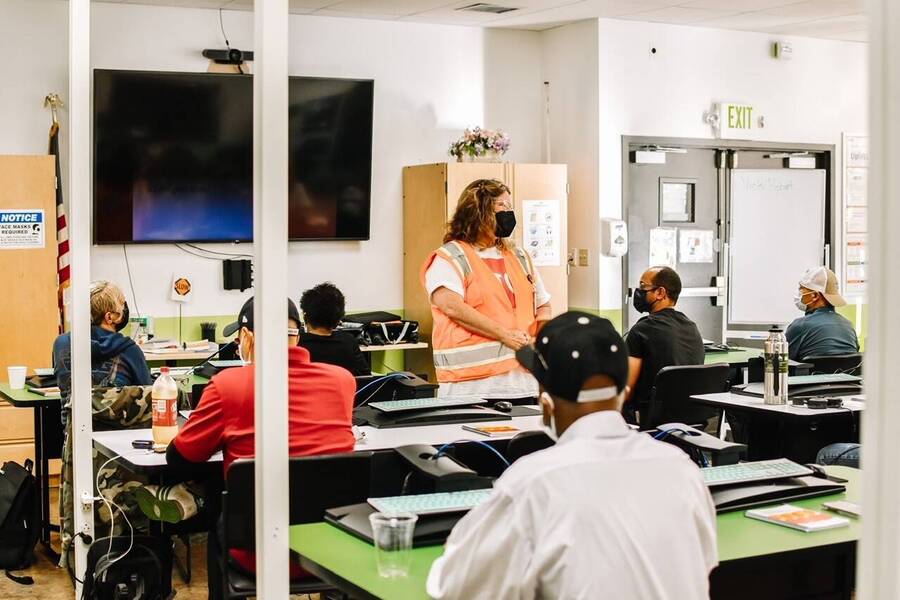Transportation Access Programs

Locations
- Seattle Department of Transportation, Washington
- Uplift Northwest, Washington
Focus Areas
- Economic Mobility
- Housing
"We need an answer, because transportation access is poverty intervention. I think a lot of people don't always make that connection about how critical transit access is to being able to have economic autonomy."
The Issue
When looking for a job, most of us start by narrowing down the possibilities based on location. We have to be able to get there in a reasonable time frame, right? Imagine how much more narrow the options would become without access to transportation. Or how stressful it’d be if the transportation available was unreliable or unaffordable. Even getting to a job interview costs money that might never be recouped.
This is the reality for many low-income individuals. There is substantial evidence to show that transportation poses a barrier for individuals with low income who are searching for jobs, especially for those residing in neighborhoods further away from job opportunities. If an individual can’t pay for transportation to job interviews or training, job search intensity wanes and poverty persists.
This problem is even worse in big cities like Seattle, where many jobs are in or near the city, but where many people can't afford to live. The average rent in Seattle is about $2,300 a month—only around $400 less than the monthly earnings of a full time worker making minimum wage. This doesn’t leave a lot of room for transportation costs, let alone groceries and other cost of living expenses.
Though there are other transportation access programs in the area, they have limitations possibly diminishing their effectiveness. For example, one of the largest employers in the area is the stadium. Workers are able to access free bus passes, but the most efficient way to get to the stadium is the light rail, which doesn’t accept bus passes. This leads to people turning down job opportunities and the cycle of poverty persists.
The Intervention
The Seattle Department of Transportation (SDoT) and Uplift Northwest are partnering to address this issue by pairing free transit with job matching programs. Uplift Northwest helps people experiencing poverty find dignified jobs and provides job readiness services. Though Uplift Northwest provides a wide range of resources to workers, their ability to provide free transportation is limited. That’s where SDoT comes in. SDoT will be providing fully subsidized transit (ORCA) cards to randomly selected Uplift Northwest clients.
Research Question
Is there an impact of receiving a fully subsidized transit card on employment decisions (shifts worked, hours worked, earnings) and well-being (benefits utilization, housing, transit usage, overall quality of life)?
Intended Outcomes
Employment Outcomes:
- Participants will have expanded employment opportunities leading to outcomes such as increased work hours, decreased missed shifts, increased annual earnings, and increased job training hours.
Wellbeing Outcomes:
- Participants will have positive impacts in other areas of life as a result of cost-savings including improved wellbeing and housing stability.
Research Study Design
The designed study is a randomized controlled trial to test the impact of subsidized transportation on transit usage, the hours that participants work, income, full-time employment, benefits utilization (such as SNAP and TANF), and housing stability. The study population consists of individuals who are enrolling in Uplift Northwest’s job pairing services.
New clients visit Uplift Northwest’s offices in-person in order to complete their onboarding. During onboarding, clients will finish paperwork and view an orientation video. As part of their onboarding day, clients will meet with an SDOT intern, who will walk the client through the informed consent process. If the client consents to the study, they will fill out a brief survey. At the end of the survey, clients will automatically be randomized into either the control group, receiving an ORCA card preloaded with $10, or the treatment group, receiving a fully subsidized ORCA card that provides free transit for 12 months. Clients who do not consent to the study will also be provided with a one-time $10 ORCA card. All clients, regardless of consent or randomization status, will receive standard Uplift Northwest services.
There is a lack of rigorous research on the impact of free transit on employment outcomes or self-sufficiency. LEO’s partnership with SDoT and Uplift Northwest is meant to bridge this gap by studying the impact of pairing free transit with job matching programs on employment and well-being outcomes. The results of this study have the potential to inform the way that resources are directed towards helping individuals with low income affordably access transportation.